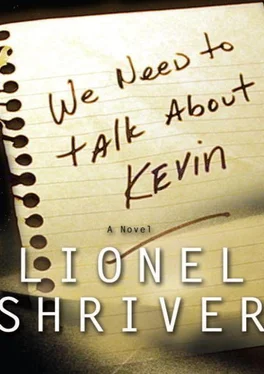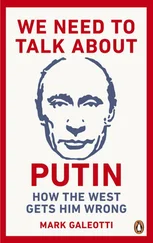Even back in 1983, I was bewildered why a standardized psychiatric label like postnatal depression was supposed to be consoling. Our compatriots seem to put much stock in slapping a tag on their ailments. Presumably a complaint common enough to have a name implies that you are not alone and dangles options like Internet chat rooms and community support groups for rhapsodic communal bellyaching. This compulsion to bandwagon has even infiltrated American small talk. I can’t remember the last time anyone told me that he “took a long time to wake up.” Instead I’m informed that he’s not a morning person . All those fellow travelers who require killer cups of coffee on waking must provide one’s disinclination to hop out of bed for a ten-mile run some extra clout.
I might have achieved a renewed appreciation for my own normative propensities, including a not unreasonable expectation that when bearing a child I will actually feel something, even something nice. But I hadn’t changed that much. I’d never found solace in being just like everybody else. And though Dr. Rhinestein offered up postnatal depression like a present, as if simply being told that you are unhappy is supposed to cheer you up, I did not pay professionals to be plied with the obvious, with the merely descriptive. The term was less diagnostic than tautological: I was depressed after Kevin’s birth because I was depressed after Kevin’s birth. Thanks.
Yet she also suggested that because Kevin’s disinterest in my breast had persisted, I might be suffering feelings of rejection. I colored. It embarrassed me that I might take the opaque predilections of such a tiny, half-formed creature to heart.
Of course she was right. At first I thought I was doing something wrong, not guiding his mouth. But no; I would place the nipple between his lips, where else could it go? He had sucked a time or two, but turned away, the bluish milk running down his chin. He’d cough, and, perhaps I imagined it, he even seemed to gag. When I went for an emergency appointment, Dr. Rhinestein informed me flatly that “sometimes this happens.” My lord, Franklin, what you discover sometimes happens when you become a parent! I was distraught. In her office, I was surrounded by leaflets about building your baby’s immune system. And I tried everything. I didn’t drink. I eliminated dairy products. At tremendous sacrifice, I gave up onions, garlic, and chilies. I eliminated meat and fish. I installed a gluten-free regime, which left me with little more than a bowl of rice and an undressed salad.
In the end I was starving, while Kevin continued to feed in his lackluster way on a bottle of microwaved formula that he would only accept from you. He wouldn’t even take my milk from a bottle, writhing from it without a sip. He could smell it. He could smell me. Yet he didn’t test positive for an allergy, at least in the medical sense. Meanwhile, my once diminutive breasts were taut, sore, and leaking. Rhinestein was adamant that I not let my milk dry up, since occasionally this aversion—that was the word she used, Franklin, aversion —would abate. It was so awkward and painful that I never did quite get the hang of the expressing pump, though it was sweet of you to go out and buy that hospital-grade Medela. I’m afraid I came to hate it, a chill plastic substitute for a warm suckling infant. I was aching to give him the very milk of human kindness, and he did not want it, or he did not want it from me.
I shouldn’t have taken it personally, but how could I not? It wasn’t mother’s milk he didn’t want, it was Mother. In fact, I became convinced that our little bundle of joy had found me out. Infants have great intuition, because intuition’s about all they’ve got. I felt certain that he could detect a telltale stiffening in my arms when I picked him up. I was confident that he could infer from a subtly exasperated quality in my voice when I burbled and cooed that burbling and cooing did not come naturally to me and that his precocious ear could isolate in that endless stream of placating blather an insidious, compulsive sarcasm. Moreover, since I had read—sorry, you had read—that it was important to smile at infants to try to elicit a smile in response, I smiled and smiled, I smiled until my face hurt, but when my face did hurt I was sure he could tell. Every time I forced myself to smile, he clearly knew that I didn’t feel like smiling, because he never smiled back. He hadn’t seen many smiles in his lifetime but he had seen yours, enough to recognize that in comparison there was something wrong with Mother’s. It curled up falsely; it evaporated with revelatory rapidity when I turned from his crib. Is that where Kevin got it? In prison, that marionette smile, as if pulled up by strings.
I know you doubt me on this, but I did try very hard to form a passionate attachment to my son. But I had never experienced my feeling for you, for example, as an exercise that I was obliged to rehearse like scales on the piano. The harder I tried , the more aware I became that my very effort was an abomination. Surely all this tenderness that in the end I simply aped should have come knocking at the door uninvited. Hence it was not just Kevin who depressed me, or the fact that your own affections were increasingly diverted; I depressed me. I was guilty of emotional malfeasance.
But Kevin depressed me as well, and I do mean Kevin and not the baby . From the very beginning that child was particular to me, whereas you often asked How’s the kid? or How’s my boy? or W here’s the baby? To me he was never “the baby.” He was a singular, unusually cunning individual who had arrived to stay with us and just happened to be very small. For you he was “our son”—or, once you started to give up on me, “my son.” There was a persistently generic character to your adoration that I’m certain he sensed.
Before you get your back up, I don’t mean that as a criticism. It must be this overarching commitment to what is really an abstraction, to one’s children right or wrong, that can be even more fierce than the commitment to them as explicit, difficult people, and that can consequently keep you devoted to them when as individuals they disappoint. On my part it was this broad covenant with children-in-theory that I may have failed to make and to which I was unable to resort when Kevin finally tested my maternal ties to a perfect mathematical limit on Thursday . I didn’t vote for parties, but for candidates. My opinions were as ecumenical as my larder, then still chock full of salsa verde from Mexico City, anchovies from Barcelona, lime leaves from Bangkok. I had no problem with abortion but abhorred capital punishment, which I suppose meant that I embraced the sanctity of life only in grown-ups. My environmental habits were capricious; I’d place a brick in our toilet tank, but after submitting to dozens of spit-in-the-air showers with derisory European water pressure, I would bask under a deluge of scalding water for half an hour. My closet wafted with Indian saris, Ghanaian wraparounds, and Vietnamese au dais. My vocabulary was peppered with imports— gemütlich , scusa, hugge , mzungu . I so mixed and matched the planet that you sometimes worried I had no commitments to anything or anywhere, though you were wrong; my commitments were simply far-flung and obscenely specific.
By the same token, I could not love a child; I would have to love this one. I was connected to the world by a multitude of threads, you by a few sturdy guide ropes. It was the same with patriotism: You loved the idea of the United States so much more powerfully than the country itself, and it was thanks to your embrace of the American aspiration that you could overlook the fact that your fellow Yankee parents were lining up overnight outside FAO Schwartz with thermoses of chowder to buy a limited release of Nintendo. In the particular dwells the tawdry. In the conceptual dwells the grand, the transcendent, the everlasting. Earthly countries and single malignant little boys can go to hell; the idea of countries and the idea of sons triumph for eternity. Although neither of us ever went to church, I came to conclude that you were a naturally religious person.
Читать дальше












